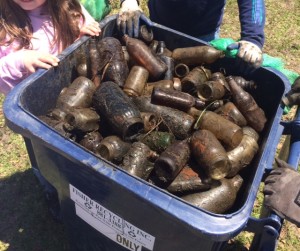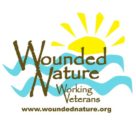Four things to know about wild marine birds, fish, and animals before discussing how the cola wars affect marine life.
- Most wild animals, when ill or injured, will mask their discomfort so predators will not attack them.
- Once a wild creature is close to death, it hides in a safe spot so as not to be eaten alive. Few are ever found or rescued.
- Most marine wildlife stay away from crowded public beaches. They breed and grow in areas not frequented or easily accessible by the public.
- For many species, if an item does not taste bad or hurt them when consumed, they are content eating it. Anyone with a puppy will gladly testify to this fact. Wildlife is not as taste-sensitive as humans and does not care about flavor.
These facts are what brings us to the subject of soft drinks. Many people think that plastic soft drink bottles are killing wildlife, and it is a contributor as it breaks down into small pieces. However, plastic bottles are not the main reason for plastics killing wildlife, it is the colorful plastic caps that become separated from the bottles. These colorful plastic caps act as lures, attract animals, and become bite-size appetizers for sea turtles, dolphins, and fish. The plastic can neither be digested nor passed through by most species. Instead, it clogs their intestinal tract and they die a slow and painful death at sea.
The beverage industry predicts selling 600 billion beverage containers over the next 3 years. They predict that at best only 200 billion of those containers will be recycled. This means that 400 billion will either make their way to landfills or become litter. We are amazed that this issue has not yet been addressed. Due to the size of these caps, they also  represent a potential choking hazard for children. Most pediatricians will tell you that if you have a child under the age of 4, these bottle caps need to be kept out of the reach of your children. While bigger than the government classification for labeling as a choking hazard, they are smaller than the number one choking hazard for children under the age of 5 – hot dogs. Think about having one of these caps lodged backward down a child’s throat.
represent a potential choking hazard for children. Most pediatricians will tell you that if you have a child under the age of 4, these bottle caps need to be kept out of the reach of your children. While bigger than the government classification for labeling as a choking hazard, they are smaller than the number one choking hazard for children under the age of 5 – hot dogs. Think about having one of these caps lodged backward down a child’s throat.
What the beverage industry can do:
The beverage industry can immediately design and implement a cap that will not detach from the plastic bottles. Metal soda and beer cans were modified more than 20 years ago to protect wildlife. It is now time for the plastic industry to do the same.
What the public can do:
You can participate in the cola wars to help save wildlife. Pepsi and Coca-Cola both spend every hour of every day battling for market share of the lucrative soft drink market. Both of these companies are fully aware of the problem, and we want both of them to race to find a solution. We understand that there would be a transitional cost to switch cap systems. As a result of the transitional cost, we also believe that the first company to implement a non-detachable bottle cap should be rewarded by the public with increased sales.
So if Coca-Cola is the first to market an improved cap, then Pepsi drinkers should switch their product loyalty until Pepsi also implements a non-detachable bottle cap to help save wildlife and children or vice versa.
As the cola wars continue to take place, Coca-Cola and Pepsi will be competing for percentage shares of the hundreds of billions of beverages to be sold in plastic containers. Competing to get their beverages sold should only be half of the competition. We would like to have Pepsi and Coca-Cola also compete on cleaning up the marine litter and preventing animal deaths that will occur. We hope the prize will be the same, increased customer loyalty for the company that works the hardest to clean up the disposable packaging killing wildlife and creating an unsightly mess.
We would like to invite both Pepsi and Coca-Cola, their consumers, and employees to donate and sponsor a boat to aid in our efforts to clean up their beverage containers that have been littered over the years. The money donated would be to sponsor a boat bearing their brand name which would allow us to clean up the caps that are already floating free harming the environment.
Wounded Nature-Working Veterans works year-round to clean up America’s coastal areas. Most of these areas can only be reached by boat and include rural beaches, tidal marshes, and high tide line collection points. Our work results in reducing the deaths of sea turtles, dolphins, sharks, and marine life. Cleaning these wildlife habitats results in increased recreational and commercial seafood production including clams, oysters, shrimp, and fish. Boats are usually needed on our cleanups making our cleanups expensive to conduct. Your donation can place a volunteer on the coast and help remove another cubic yard of litter and debris creating a small stretch of pristine beach and coastal area where wildlife breed and live.
You can see our YouTube video, Marine Life and Plastic Caps for more information on how beverage caps affect wildlife.
